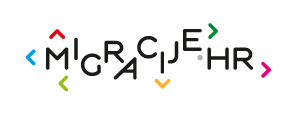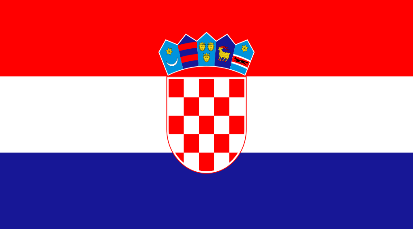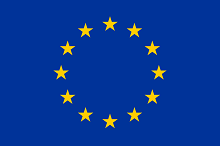Croatia (officially the Republic of Croatia) is a European country, which is part of the Central and Eastern Europe in geopolitical sense and is geographically located in the southern part of Central Europe and in the northern part of the Mediterranean. Croatia shares borders with Slovenia and Hungary to the north, Serbia and Bosnia and Herzegovina to the east, Montenegro to the south, and it also shares a sea border with Italy on the west. Its land area is 56,542km² and the area of its territorial sea is 31,067km², which makes Croatia one of the medium-sized European countries.
In addition to water wealth, Croatia has a highly preserved nature with hundreds of endemic plant and animal species, and almost 10% of its territory is protected within 11 nature parks, 8 national parks and two strict reserves.
The territory is administratively divided into municipalities, cities, and 20 counties, and the City of Zagreb with special status of both the city and the county.
The capital city is Zagreb, which represents a political, economic, cultural and scientific centre. Other major cities are Split, Rijeka, Zadar and Osijek.
Calling code for Croatia is +385, and the time zone is UTC+1.
A Brief Historical Overview
The first Slavic tribes, including the Croats, arrive to the territory of today’s Croatia in the 6th and 7th century during the Great Migration period. At the end of the 8th century and in the early 9th century, they are subject to the Frankish ruler Charles the Great, and organized in two border regions, south and north. The national dynasty Trpimirović took the authority in the south Croatia, and their rise began during the ruling of Tomislav who expanded Croatian territory to the northern, Pannonian principalities, and was crowned as king in 925. In the 11th century, during the kings Petar Krešimir IV and Dmitar Zvonimir, the Byzantine Dalmatia and the Neretva Principality were joined to Croatia. After the death of the last member of Trpimirović dynasty, Stjepan II, the war of thrones started in Croatia, which ended in 1102 by election of the Hungarian king Coloman of Arpad dynasty as the Croatian king and by concluding the personal union with Hungary.
After the Ottoman conquest in the 16th century and the loss of large parts of the country, the Habsburg dynasty came to the Croatian throne, making Croatia part of the Austrian Empire. In the 18th century, Croatia was divided between the Habsburg Monarchy and the Venetian Republic, and Croatia with Slavonia, which was part of the Habsburg countries, was divided into Croatia Banate, governed by the Hungarian part of the Monarchy, and the Military Frontier (Krajina) under the direct management of Vienna. The area under Venetian authority was divided into the provinces of Dalmatia and Istria. Shortly after Napoleon’s conquest in the early 19th century, part of the Croatian lands was united within the Illyrian provinces.
Since Vienna concluded the Austro-Hungarian Compromise with Budapest in 1867, contrary to Croatian interests, within the framework of the newly-established Austro-Hungarian Monarchy Istria and Dalmatia were included in the Austrian part of the Monarchy, and Croatia became the Hungarian part of the Monarchy.
At the end of the First World War in 1918, Croatia joined the State of Slovenes, Croats and Serbs, and became part of the Kingdom of Serbs, Croats and Slovenes (the Kingdom of Yugoslavia from 1929). At the end of the Second World War in 1945, Croatia became one of the federal units of the newly established FNRJ (Federal People’s Republic of Yugoslavia), later the SFRY (Socialist Federal Republic of Yugoslavia), and the borders defined by AVNOJ (Anti-Fascist Council of National Liberation of Yugoslavia) and ZAVNOH (National Anti-fascist Council of National Liberation of Croatia) became internationally recognized borders of today’s Republic of Croatia, which Croatia defended in the War of Independence in order to keep the integrity of the Croatian state.
Based on democratic multi-party elections conducted in 1990, the Multi-Party State Parliament was constituted on 30 May 1990, and on 25 June 1991 the Republic of Croatia became an independent state and was internationally recognized as such on 15 January 1992. Croatia is a member of the United Nations since 22 May 1992, the Council of Europe since 1996, the World Trade Organization since 2000, the Organization for European Security and Cooperation since 1992, the North Atlantic Treaty Organisation (NATO) since 2009 and the European Union from 1 July 2013.
Political organisation
According to political organisation, Croatia is a parliamentary democracy, it is republic by its governmental organisation, and in economic terms, it is focused on market economy. Croatian political system is based on the principle of triple separation of powers divided into legislative (the Parliament), executive (Government and the President) and judicial power, and since the first democratic multi-party parliamentary elections held in the spring of 1990, the highest legal act in Croatia is the Constitution of the Republic of Croatia.
The Croatian Parliament is a representative body of citizens and a holder of legislative authority in the Republic of Croatia. According to the Constitution, the Croatian Parliament is a unicameral representative body consisting of a minimum of 100 and a maximum of 160 members, who are elected for a period of four years on the basis of universal and equal electoral rights by secret ballots.
The President of the Republic of Croatia has a representative and executive function. The President represents the Republic of Croatia in the country and abroad, cares for regular and coordinated activities and for the stability of the state government and, as Supreme Commander of the Armed Forces of the Republic of Croatia, the President is responsible for the defence of the independence and territorial integrity of the Republic of Croatia. Presidents are elected for a period of five years on general and direct elections by majority of votes of all voters who participated in elections.
The Government of the Republic of Croatia proposes laws and other acts to the Croatian Parliament, proposes the state budget and the final account, implements laws and other decisions of the Croatian Parliament, issues regulations for the execution of laws, conducts external and internal politics, directs and supervises the work of state administration, cares about the country’s economic development, directs the activities and development of public services and performs other tasks defined by the Constitution and laws.
Misdemeanour courts, municipal courts, county courts, commercial courts, the High Misdemeanour Court of the Republic of Croatia, the Administrative Court of the Republic of Croatia and the Supreme Court of the Republic of Croatia represent the judicial authority in the Republic of Croatia. The Constitutional Court of the Republic of Croatia decides on the constitutionality of acts and has the right to revoke the acts it considers unconstitutional.








